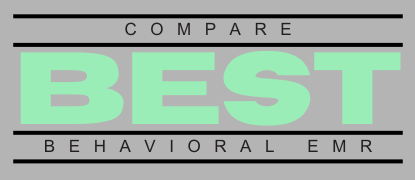For behavioral health practices, managing patient records and data can be a daunting task. In the digital age, leveraging technology such as Electronic Medical Records (EMR) systems can significantly streamline operations, enhance workflow efficiency, and ultimately improve client outcomes. In this article, we’ll explore the role of behavioral health EMR systems in enhancing practice operations.
Understanding EMR Systems in Behavioral Health
EMR systems are digitized versions of patients’ paper charts. These systems are designed to record patient data accurately and update in real-time. They provide a comprehensive medical history of patients, including diagnoses, treatment plans, immunization dates, and more. For behavioral health practices, EMR systems can be a game-changer. They can aid in tracking patient progress, identifying treatment patterns, and improving the overall quality of care.
Benefits of Implementing EMR Systems
Integrating EMR systems into your behavioral health practice can offer several benefits.
Improved Workflow Efficiency
EMR systems can significantly streamline your practice’s operations. They eliminate the need for manual record-keeping, thus reducing the chances of errors and saving time. Moreover, they allow for easy data retrieval, which can be crucial in urgent situations.
Enhanced Patient Outcomes
With EMR systems, behavioral health practitioners can monitor patient progress effectively and adjust treatment plans as necessary. They can also facilitate better coordination of care among different healthcare providers, leading to improved patient outcomes.
Compliance with Regulatory Standards
EMR systems can help your practice comply with regulatory standards such as the Health Insurance Portability and Accountability Act (HIPAA). They offer secure storage and transmission of patient data, ensuring privacy and confidentiality.
Choosing the Right EMR System for Your Practice
Selecting the right EMR system is crucial to maximize its benefits. Here’s where our free practice analysis comes into play. This tool helps identify the best EMR solutions tailored to your specific practice needs.
In Conclusion: The Power of EMR Systems in Behavioral Health
The integration of behavioral health EMR systems can be a transformative step for your practice. They can help optimize workflow efficiency, improve patient outcomes, and ensure compliance with regulatory standards. To find the right EMR system for your needs, consider using our free practice analysis tool. It can provide valuable insights into the most suitable solutions for your practice.
As the healthcare landscape continues to evolve, embracing technologies like EMR systems is no longer an option but a necessity. Make the smart choice today and revolutionize your behavioral health practice!
### Meta Description:
Explore how integrating EMR systems can enhance workflow efficiency and improve client outcomes in behavioral health practices. Learn more with our free practice analysis tool.
